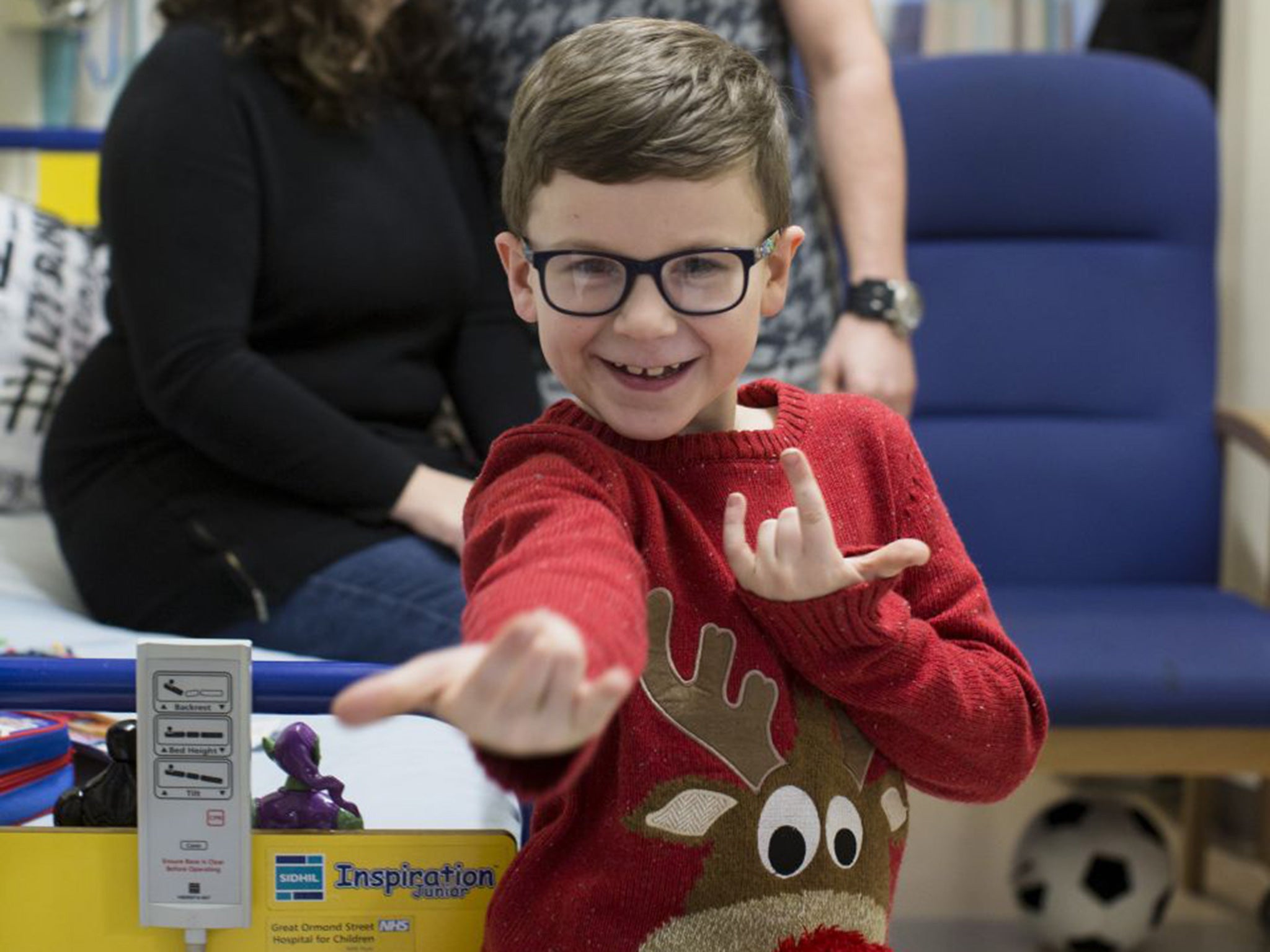Accommodation means one fewer thing for Taylor’s parents to worry about
'I’m glad you’ve seen him like this, but this is a good day for him'

Your support helps us to tell the story
From reproductive rights to climate change to Big Tech, The Independent is on the ground when the story is developing. Whether it's investigating the financials of Elon Musk's pro-Trump PAC or producing our latest documentary, 'The A Word', which shines a light on the American women fighting for reproductive rights, we know how important it is to parse out the facts from the messaging.
At such a critical moment in US history, we need reporters on the ground. Your donation allows us to keep sending journalists to speak to both sides of the story.
The Independent is trusted by Americans across the entire political spectrum. And unlike many other quality news outlets, we choose not to lock Americans out of our reporting and analysis with paywalls. We believe quality journalism should be available to everyone, paid for by those who can afford it.
Your support makes all the difference.In many ways Taylor Banks’ room is just like the bedroom of any seven-year-old boy. There is Lego everywhere and a school report is pinned above his bed.
He charges around just like any other seven-year-old, too, but his bed isn’t in his room at home in Leigh, near Manchester. Instead it’s surrounded by medical equipment in Rainforest Ward at Great Ormond Street Hospital (GOSH), where Taylor’s unique illness is confounding doctors.
Taylor first became unwell aged two when, according to his mum Gema Westwell, 30, he seemingly became diabetic “overnight”. He has been in and out of hospital ever since and this autumn he deteriorated significantly and spent two weeks in Royal Manchester Children’s Hospital before being referred to GOSH in October.
He might look like a healthy little boy, but in addition to Taylor’s type-1 diabetes he has a rare allergy to insulin – meaning he can’t be treated with the standard remedy of subcutaneous injections of the life-saving hormone.
Instead doctors have to administer insulin intravenously in hospital, but even this is not sustainable as repeated intravenous treatment is blocking his veins. Meanwhile the threat of diabetic coma is never far away. “We’ve almost lost him three or four times,” said his mother, speaking at his bedside earlier this week. “Today he’s full of energy and charging around. I’m glad you’ve seen him like this, but this is a good day for him. It can change so quickly. And what’s really tough is that his personality has changed. He’s been ill for so long he gets angry, and is then shy when he leaves the hospital.”
Allergy to insulin is rare but not unheard of, but what’s truly unique about Taylor is that his reactions can differ depending on where on his body the treatment is administered. When the hormone is injected under his skin his muscles can collapse or swell, while if insulin is administered intravenously to bypass his skin he can have an internal allergic reaction, suggesting there are other complicating issues at play. Most worrying for his parents, a trawl of all the available medical literature worldwide has found no similar cases. They also don’t know if he’ll be well enough to be home for Christmas.
Dr Rakesh Amin said: “If you look at him you wouldn’t know he was unwell. He is incredibly finely balanced between health and rapid deterioration.” Dr Amin is the endocrinology consultant who is treating Taylor and exploring new avenues of treatment, including a possible transplant or the use of another hormone to treat his diabetes. “If he doesn’t respond well in the new year we are going to be entering highly experimental territory,” he said.
Meanwhile Taylor’s father Scott, 30, is having to commute each weekend from Lancashire while holding down a job as a forklift driver. He is one of the 1,000 parents that GOSH provides accommodation to each week, a service that will be supported by The Independent’s Give to GOSH campaign. “I don’t know what we would have done without the parent accommodation,” he said. “There’s no finish line in sight for us, but we are trying to stay positive.”
Taylor’s condition is so unpredictable that his parents don’t know whether to prepare for Christmas in his small room at the hospital or if they will be able to go home for a few days. “It would be wonderful to be at home for Christmas, but we’ve been down this road before,” said Gema. “Christmas will come to Taylor wherever he is.”
To Give to GOSH go to: http://ind.pn/1Mydxqt
To find out more about our appeal and why we're supporting GOSH go to: http://ind.pn/1MycZkr
Join our commenting forum
Join thought-provoking conversations, follow other Independent readers and see their replies
Comments